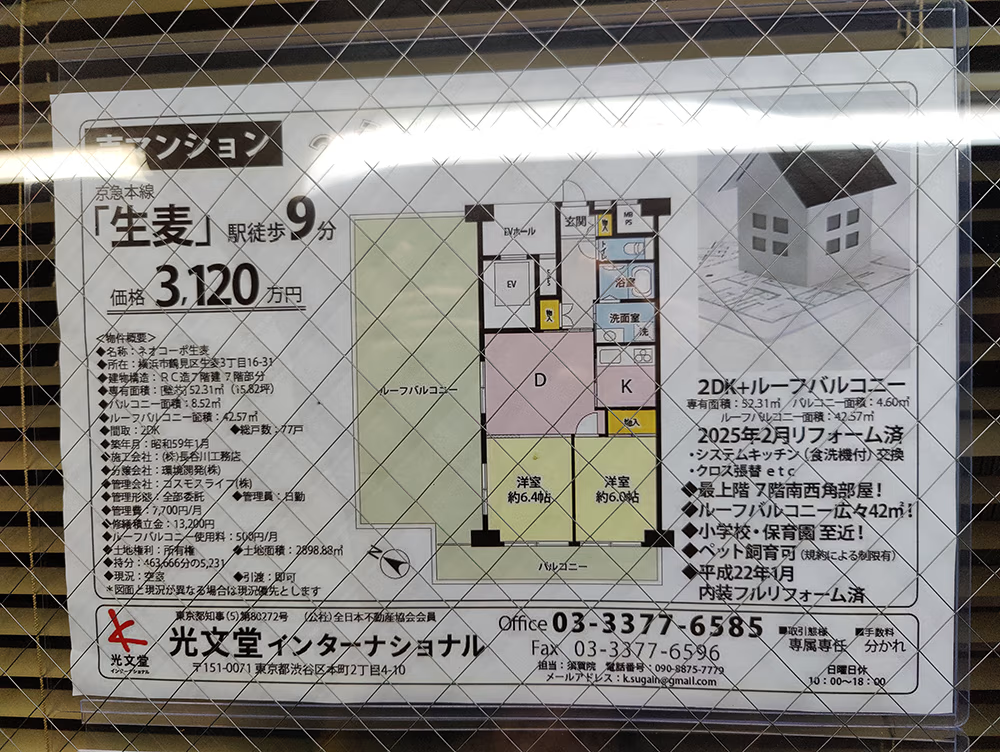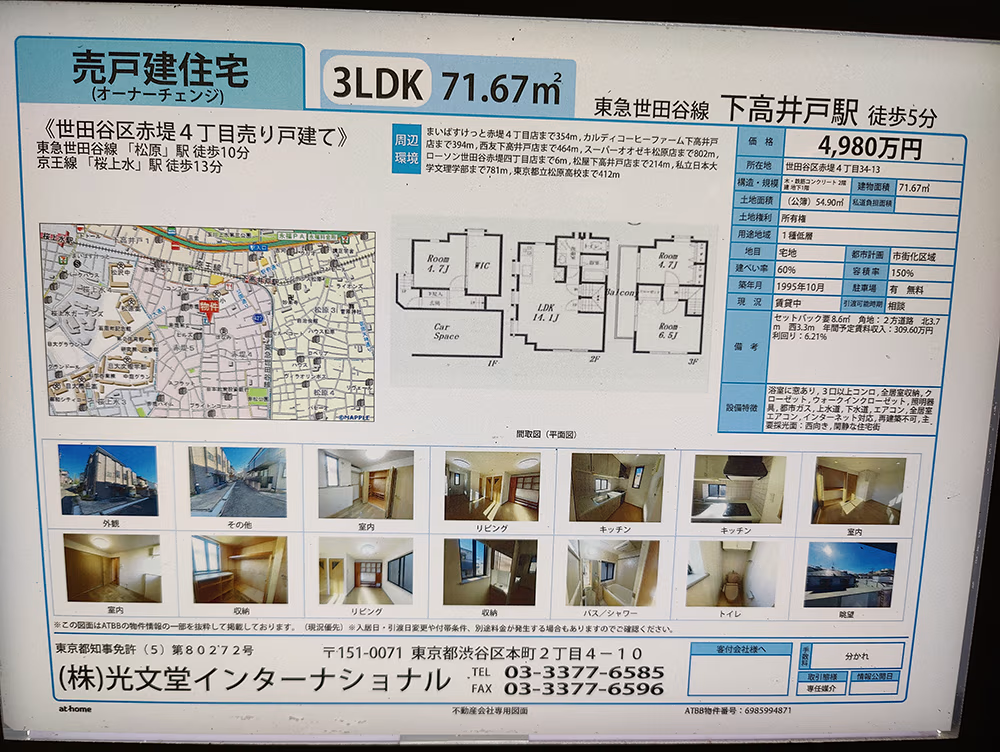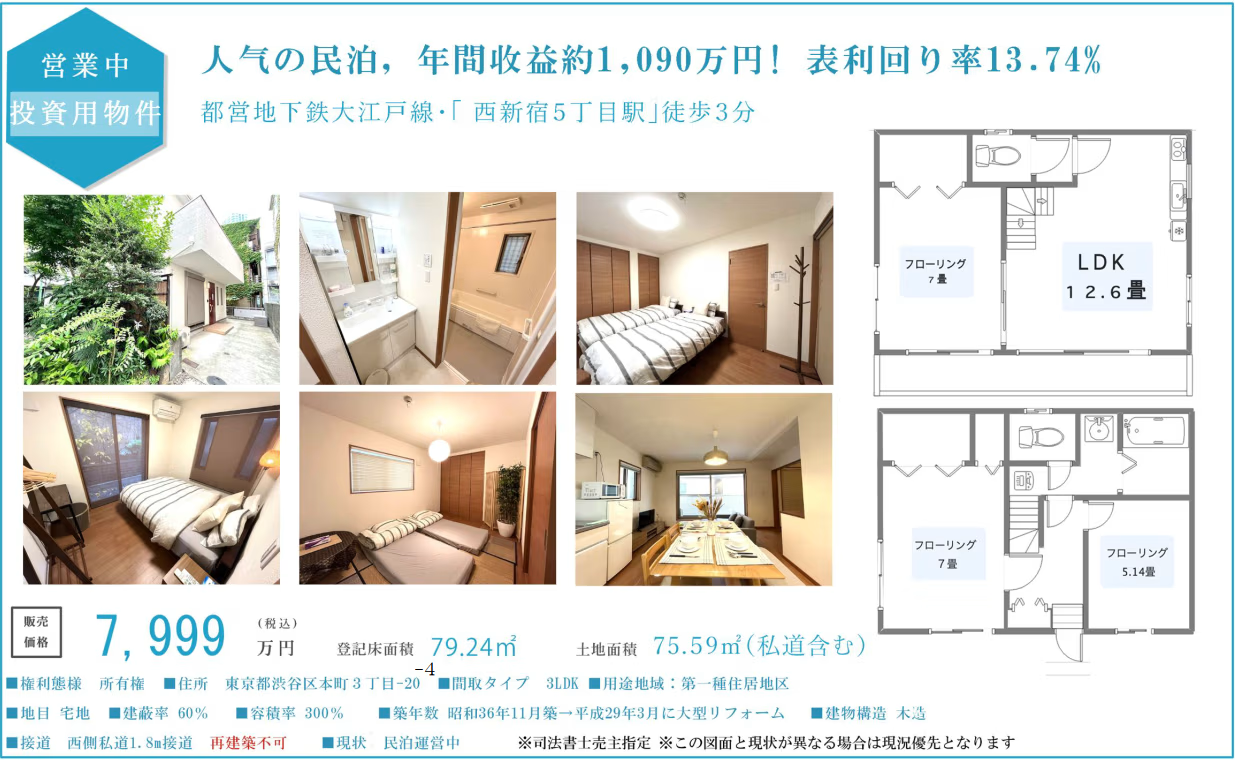MENU

Why do majority of Japan's Real Estate Listings online don't have Good Quality Photos?
LaTest Update: August 22, 2025
01. Where are all the pictures?
04. Privacy Concerns
06. Marketing Effort vs. Reward
08. Our Perspective
Is this something uniquely Japanese?
This is the first of a two part article where we try to understand what are some of the unique characteristics in the Japanese real estate market that may explain why majority of the real estate listings in popular real estate sites usually lack quality photos in their listing.
Please note that this is not legal advice and is shared for information purposes only. Any real estate decisions should be consulted with a licensed professional.

If you've ever browsed Japanese real estate listings, whether on Suumo, Homes, or sometimes even a local agency's website, you've probably noticed something strange. The photos are often low-quality, poorly lit, and sometimes are not helpful at all.
You get pixelated images, weird angles, cluttered rooms, and even photos taken from the outside with no interior shots at all. Sometimes you just get a floor plan (or even worse... just a lot drawing) and if you are real unlucky, you don't even get photos of the property at all - but photos instead of the nearby establishments and landmarks like a nearby convenience store, nearest station entrance, or a nearby school or community center.
Although some of the more expensive properties may have better quality photos, the large majority of real estate listings still seem like they are stuck in the 90's internet era with their low resolution pictures. Is there something unique in Japan why things are the way they are? Well to find out, we did some digging into this topic and talked to some people in the industry.
 Many of the real estate agencies display their available listings on the window of their stores like this one here. Property flyers like these are probaby the default way of advertising property.
Many of the real estate agencies display their available listings on the window of their stores like this one here. Property flyers like these are probaby the default way of advertising property.
Let's start with the most obvious and general reason on why real estate photos in Japan are the way they are and haven't seem to have caught up with the times. Many landlords (地主) and agencies (不動産会社) are still run by traditional folks who don’t value digital presentation. For them, a listing photo is just a formality. Flashy marketing isn’t part of their business mindset, especially in low-vacancy areas where demand is stable.
Unlike in super competitive markets like New York or London, Japanese real estate agencies don’t always compete on marketing. A big part of the real estate business in Japan is based on relationships and trust.
New technologies like the internet, social media and online marketing can be seen as impersonal to real estate veterans who put face to face customer interaction and personal service as the cornerstones of how they do business.
Many Japanese people who are on the lookout for property, often already have a specific area or neighborhood in mind. Usually, there will be one or two local real estate firms that holds office in that area (often a close distance from the train / subway station) and that real estate firm actually becomes the immediate place when an owner is looking to rent or sell their property. By virtue of being part of the community, these real estate firms would have a good grasp and coverage over what properties are available.
Essentially having a foothold over the neighborhood, there is not much incentive to do more than the minimum when there is a consistent demand and a captured market. While this is not always the case especially for highly urbanized places, it's something you will definitely observe for the smaller less commercialized neighborhoods.
In some cases, the property for sale may actually still be occupied by either the owner or an existing tenant. For investment properties where the current owner wants to do an "owner change" this may involve the sale of the property and assuming any existing lease agreements with the current tenant. In Japan, the legal relationship between a landlord and a tenant is governed by the Civil Code of Japan (民法) and the Act on Land and Building Leases (借地借家法).
For investment properties with existing tenants
For properties still occupied by the current owner
A lot of real estate agents rely on the owner, landlord or management company (管理会社) to provide the property photos. Many of these property managers don’t bother hiring professional photographers as they don't have the budget, and instead just snap a few quick pics on an old phone, if at all.
Some real estate agents who do take the effort to try to get better photos will also not hire professional photographers and instead try to take the photo themselves either using their own smartphone or camera. (Sometimes they are actually required to use the real estate company's equipment like the company phone or camera!)
While we can at least credit these agents for taking the effort, the results will obviously not be the same as getting a real estate photographer.
 This flyer is a rare example with "comprehensive" information. It has the location map, floor plan, and actually some pictures of both exterior and interior of the property.
This flyer is a rare example with "comprehensive" information. It has the location map, floor plan, and actually some pictures of both exterior and interior of the property.
After talking with some real estate agents both in-person and online, a lot of them actually don't have anything against high quality photos and some even believe these are effective tools to help promote a property in the market.
However, the reality is that most real estate agents have a lot of clients (each month adding more) and they need to be able to determine which ones are serious and thus more likely to complete a contract than those who are just browsing. Customers who are willing to view the property in person are deemed as more serious and will also get the proportional time and energy from agents in helping them find a property and complete the contract.
This is where properties with a few photos becomes a way to differentiate the "serious" prospective buyers / renters. Prospects who are willing to view the property in person despite the lack of pictures (as long it matches the criteria they are looking for) is a strong signal to real estate agents that they are serious looking for a property.
 Online listings can also be scanned versions of the paper flyers.
Online listings can also be scanned versions of the paper flyers.
If you are looking for a property as a buyer / renter
If you are a property owner looking to sell or lease your property
If you are a real estate agent
At SHIBUYA360° we are imaging experts first and we strive to understand the real estate market better so we can provide better services and support this important industry through our real estate photography and virtual tour production services.
We learned a lot hearing from real estate agents we talked to (as well as some real estate customers) on what are the reasons why real estate listings in the Japanese market have little or low quality photos. This is definitely not the case for all listings and in other articles, we will explore the firms that have invested not just in professional real estate photography but even 360° virtual tours to provide better services for their customers.
During our conversations with real estate experts, there were some aspects of the customer psychology that we learned but didn't exactly fit this article. Check out our other articles related to Japanese real estate below.
We'd like to thank the real estate agents and experts that have shared their insights with us through chat and in online forums that allowed us to create this article.
Continue Reading

A recent study from the National Bureau of Economic Research (NBER) offers one of the most comprehensive answers to date.
In today's real estate and short-term rental markets, standing out is critical. Virtual tours have become an increasingly popular way to attract buyers and renters, but are they worth the investment?
Based on 10+ years of real estate data from Vancouver, the study reveals that virtual tours do help improve sales outcomes depending on certain conditions.

There are a lot of things unique in Japan... including How You Can View a Property.
House-hunting in Japan but can’t make the trip to see the place yourself? A “Viewing Partner” can step in, visit the property on your behalf, and send you detailed photos, videos, and honest feedback.
Is this a popular service that is widely available in Japan? What are the benefits and why you should consider them? What about using virtual tours for remote viewing? We take a look at this unique service.

It's a popular Manga / TV Drama about real estate that is not only entertaining but educational.
"Shojiki Fudosan" is a Japanese manga series first released in 2017 and has since gotten a live action TV drama in NHK for two seasons and even some live action movie spinoffs.
It's not only entertaining but we can learn some real tips in real estate!